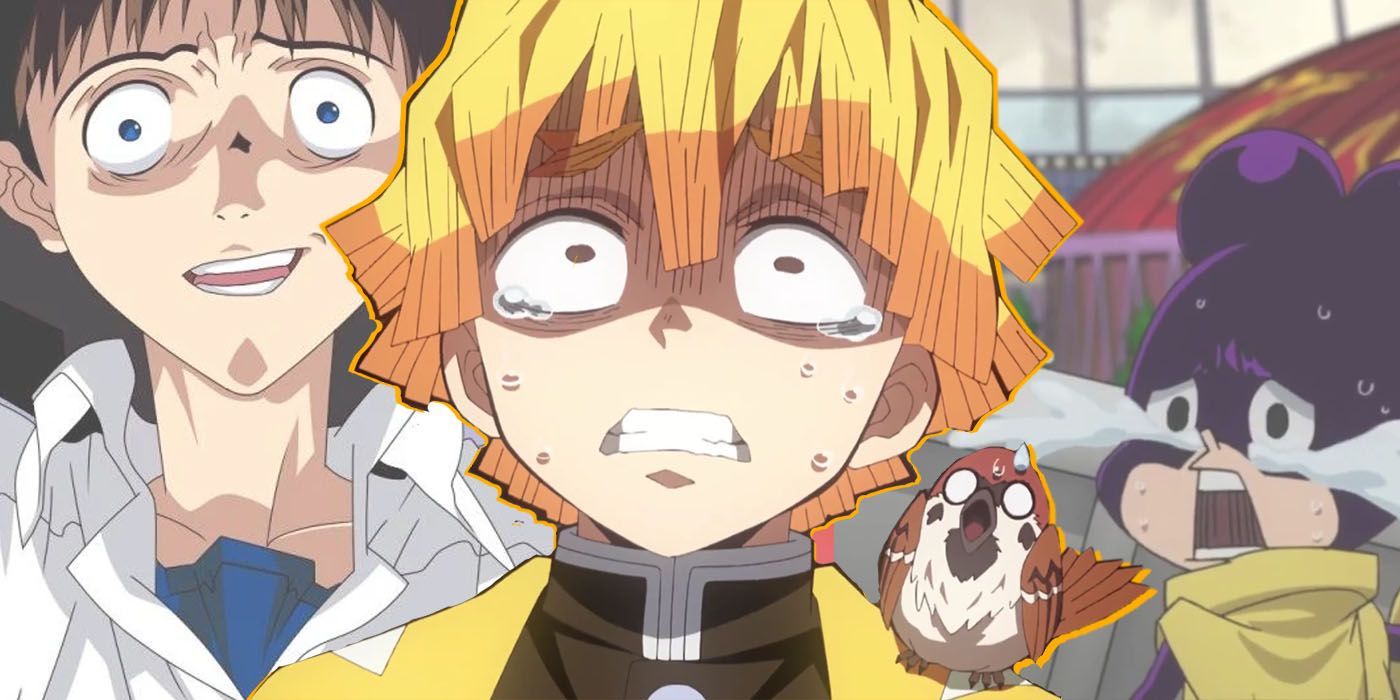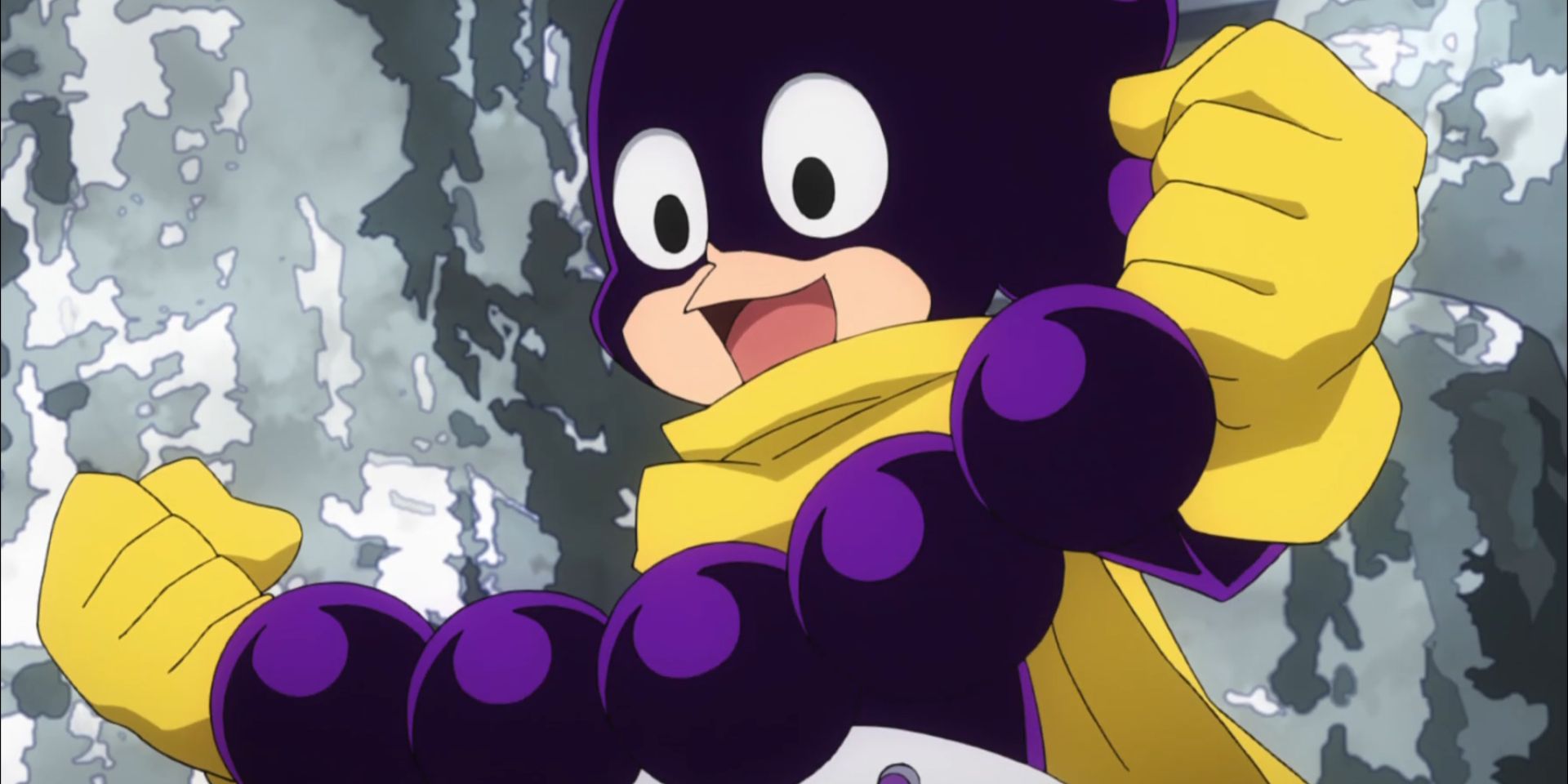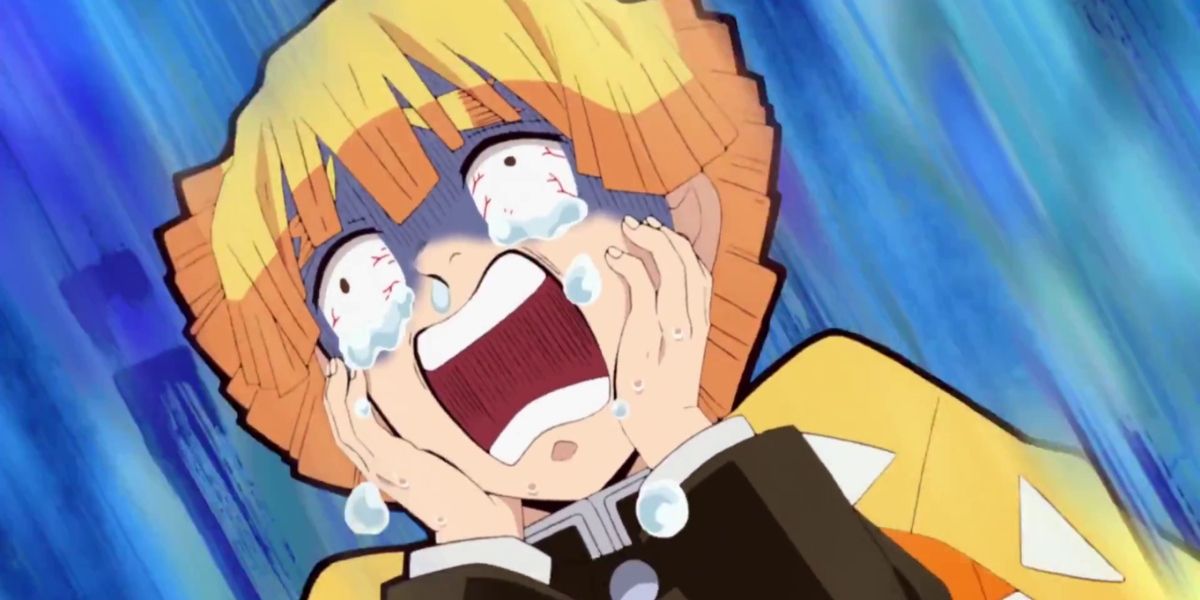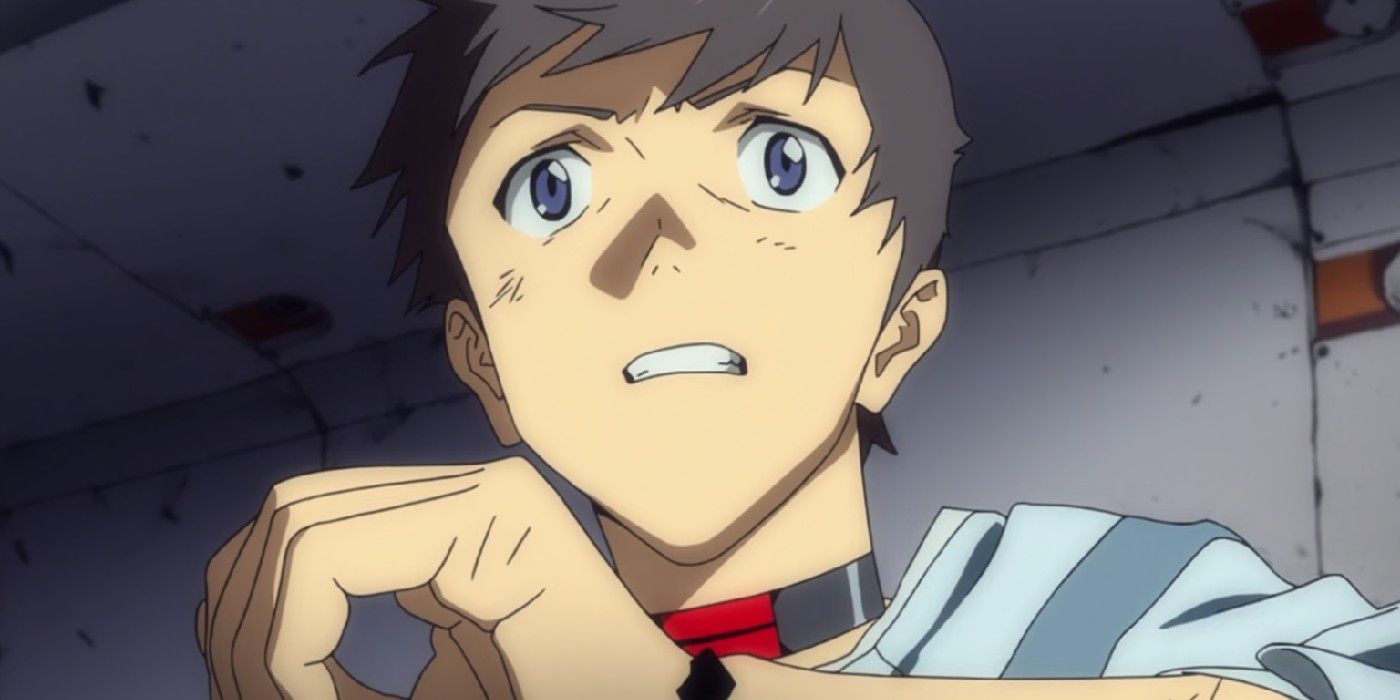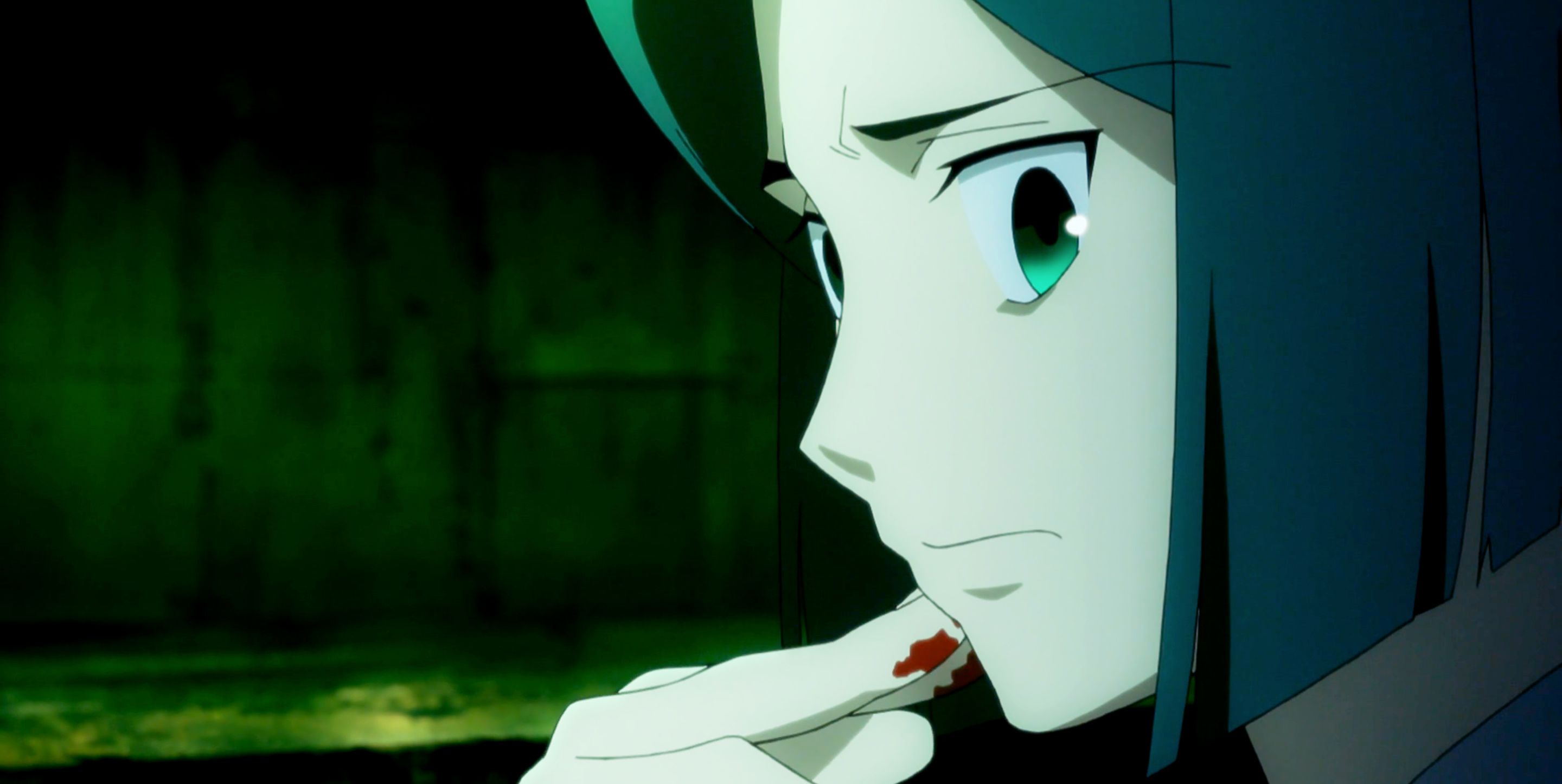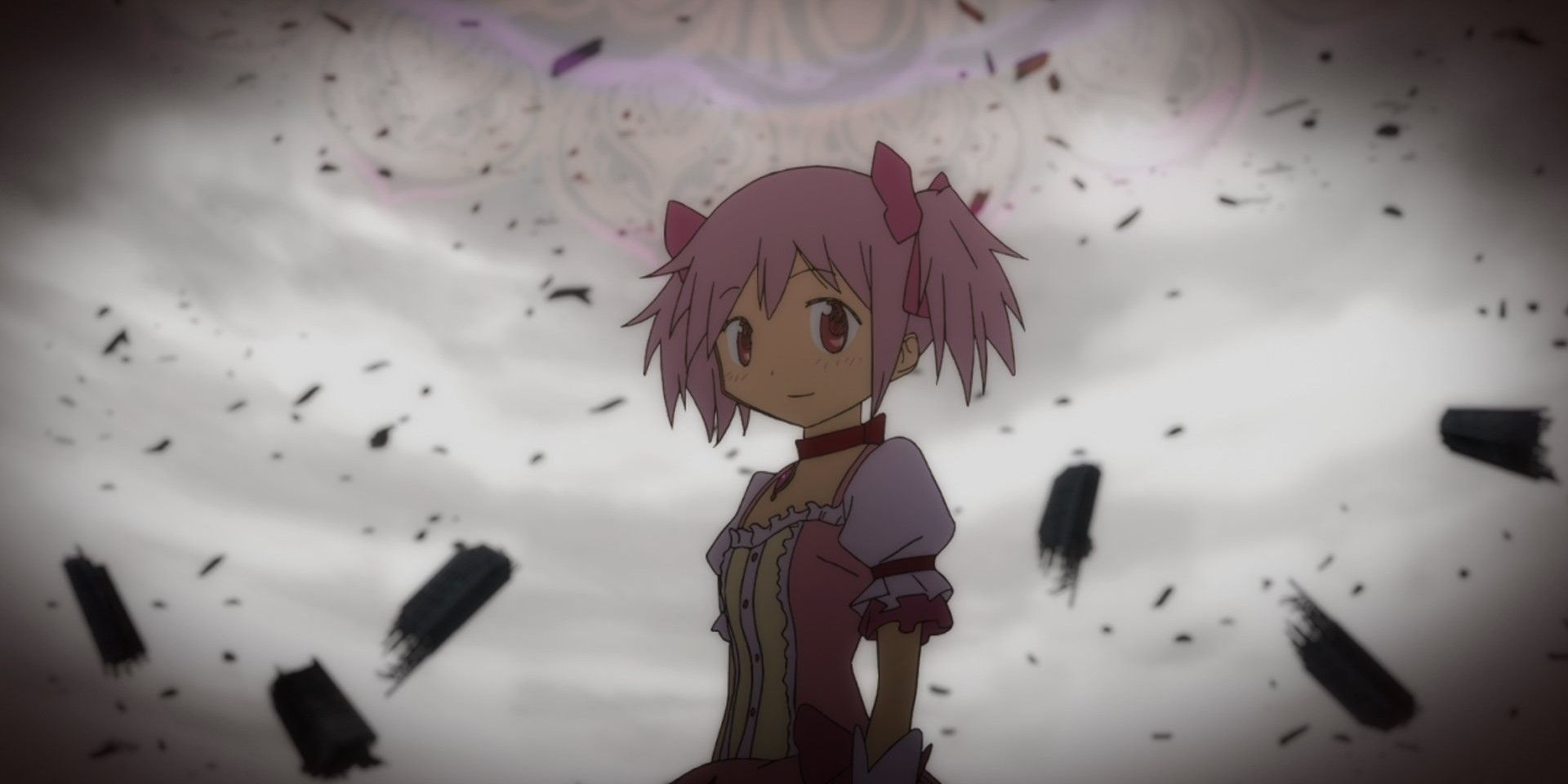Sometimes, when the going gets tough, the most logical course of action is to run away. Unfortunately, in the anime community, this reflex can turn a character into a fandom pariah. From superheroes to magical girls, the cowardly character has become a staple archetype in anime and manga. However, their existence is not always embraced by fans and can often lead to these characters being highly divisive.
There are several factors that should be taken into account when considering a character’s cowardice: age, previous experiences, strength, and outside support. These aspects often shape how a cowardly character behaves when interacting with other characters, and shapes their individual character arcs.
Starting at the bottom, Mineta Minoru from My Hero Academia is a fairly static character who has never endeared himself to fans, being both cowardly and a pervert, and taking advantage of serious situations to satisfy his lecherous ways. If Mineta was only a coward, he could maybe be redeemable amongst the anime community. He is, after all, very young, and has little experience being a hero. His power level is also quite weak. However, his lack of a support group is his own fault for his behavior, and that makes it hard to root for him to grow as a person, despite all the other ways he receives a pass.
A step up from Mineta is Agatsuma Zenitsu from Demon Slayer. Zenitsu is a more complex coward, so audeinces have become relatively divided on his likability. Zenitsu is only sixteen, but went through intensive training, giving him a solid background for demon hunting. He is also extremely powerful, even if he doesn't quite realize his strength. The fact he needs to pass out from fear in order for his powers to activate makes his cowardice much more integral to his growth. Zenitsu also has support in his fellow demon slayers. However, he's extremely annoying at times when it comes to his cowardice, screaming and harassing young women to marry him before he dies. His obsession with Nezuko can be seen as either sweet or creepy, creating the fandom schism when it comes it public opinion on his character.
It’s important to note that Zenitsu does gain the role as a protector during the Entertainment District Arc, where he battles Daki out of revenge for the way she treated young girls in the brothel. So, while Zenitsu may have to pass out to unlock his full potential -- at least for now -- he has also shown he is capable of putting his own life at risk if it means protecting those in need. Though divisive, Zenitsu has proven his worth time and time again.
While both Mineta and Zenitsu are supporting characters that fill the cowardly archetype, there is a protagonist who has been infamous for decades due to his anxiety and cowardice. Ikari Shinji from Neon Genesis Evangelion is a classic cowardly protagonist. Shinji, a very young and naive fourteen-year-old, is thrown into a life of battling Angels while piloting a mech suit. His power is also based entirely on his EVA unit. Shinji’s cowardice is completely understandable, and the reason audiences turn against him is almost certainly because of Ayanami Rei, who is willing to pilot her EVA while gravely injured while Shinji stands off to the side grappling with his fear. Using the idea of Shinji allowing a young girl to take his place would make his cowardice irredeemable, and some still judge him for that one moment.
However, the fact that Shinji does take Rei’s place also puts him in the protector role, proving he has the capability to grow. Shinji has more of a support system in Katsuragi Misato and even more so in Kaworu, who infamously takes Shinji’s burdens from him and places them upon himself, though this has the habit of backfiring. The way Shinji’s cowardice is built upon and given layers makes it so he’s not just a walking trope, but a true representation of constant fear and rejection, making his behavior understandable and forgivable.
Another example of a character who grows beyond the archetype due to the structure of a support system Waver Velvet from Fate/Zero possesses a complex character arc that showcases these traits. Waver is twenty, so has a small age advantage compared to other characters fitting this trope, but he has no relevant background experience and is incredibly weak compared to his opponents. The difference with Waver is his support system. Being in the company of Rider, Waver receives validation for the way he works around problems to deal with his weakness. When faced with the horrific scene of dead children, Rider urges Waver not to look. Having a mentor character tell Waver his emotions are not a sign of weakness prompts the audience to disregard it as an act of cowardice.
Other cowardly characters have nothing that compares to Rider’s influence on Waver, so it makes sense that Waver has the most growth. By the end of the series, Waver is able to face down Gilgamesh, the big bad of the Fate franchise, and be fully prepared to die. Gilgamesh, touched by Waver’s loyalty to Rider, allows him to walk away, one of the few times Gilgamesh shows mercy. Waver still has to wipe tears away, but he isn’t belittled for needing to cry.
Comparing these cowardly characters, now knowing how they are created, it would seem that how they are received comes from how they act out their cowardice. Leonardo Watch from Blood Blockade Battlefront is very aware and ashamed of his cowardly nature, but still fights through it in order to protect those he cares about. Kaname Madoka is scared of being a magical girl but ultimately faces that fear as well and sacrifices everything in Puella Magi Madoka Magica. These two characters are generally well-liked and not berated for their fear. On the other hand, Amano Yukiteru from The Future Diary is a very unpopular protagonist, seeing as he allows his girlfriend to do most of the dirty work in their survival game. Yukiteru therefore skips out on becoming the protector and is instead the protected, right up until the end of the series, when the damage to his likability has already been done.
Perhaps it's alright to run away, but ultimately it's how a character runs away that influences whether they will end up being controversial. When handled correctly, cowardice can be a fascinating trait for a character to struggle with.
Characters who merely continue to scream and run away without taking the opportunity to grow will only become annoying with time. Characters that eventually turn around to face what they were running from are exhibiting the best kind of growth that will endear them to their fandom forever.

